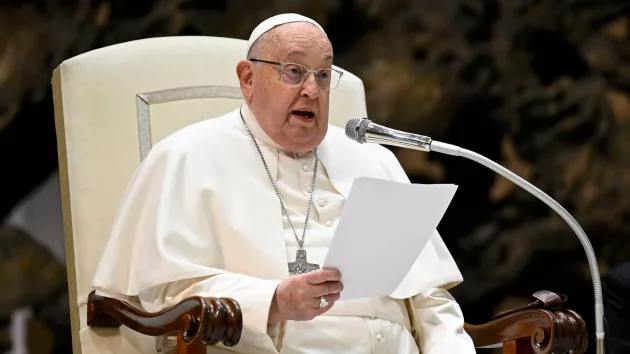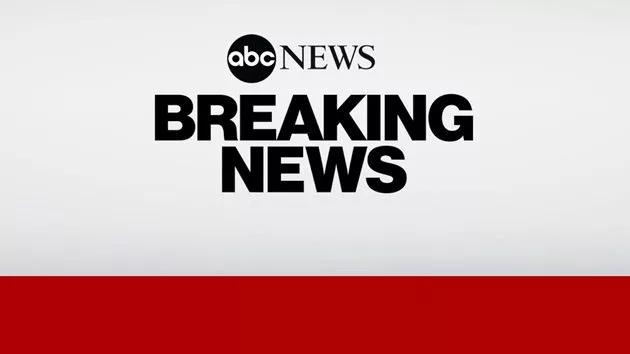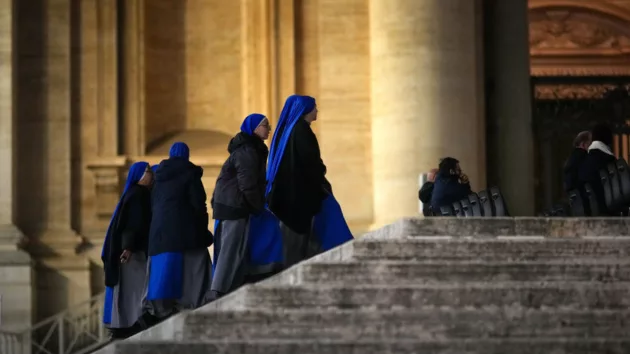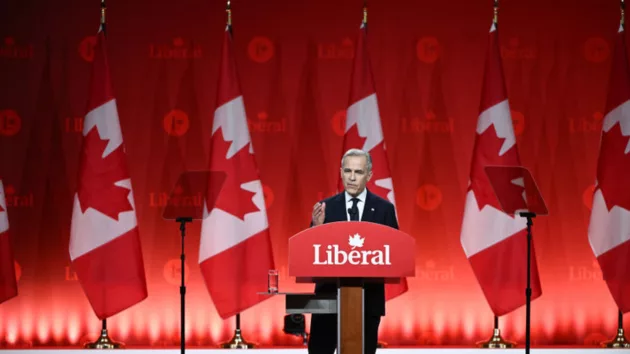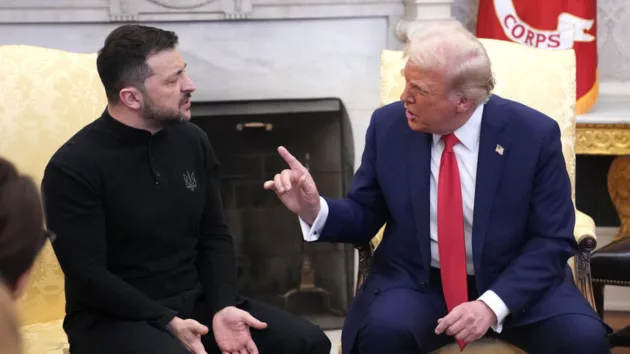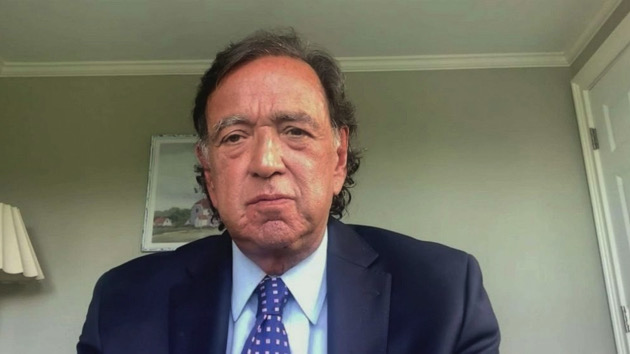
(NEW YORK) — The saga of WNBA star Brittney Griner continued Monday after her attorneys filed an appeal over her conviction and nine-year Russian prison sentence for drug possession.
The move comes as U.S. officials continue to seek a prisoner transfer for her and fellow captive American Paul Whelan.
ABC News Live spoke with Bill Richardson, a former U.S. ambassador to the U.N., who has been a frequent emissary in hostage negotiations through the Richardson Center for Global Engagement, about the latest developments.
ABC NEWS LIVE: Let’s start with the news of Griner’s team filing an appeal. I’m curious, does that have any impact, you think, on diplomatic talks for a prisoner exchange to bring Griner and fellow detained American Paul Whelan home?
RICHARDSON: Well, indirectly, it basically says the legal process is over except for the appeal, and it’s reasonable to have this appeal [for a] nine-year sentence in a penal conflict. Now, there can be negotiations between the United States and Russia. Both seem disposed.
There’s been a prisoner exchange about two months ago, Trevor Reed, that I was indirectly involved in. I think the legal team of Brittney Griner has been effective [in] showing contrition, acknowledgment of the mistake and now the appeal. And I think…this potential return date from the American side is very important to [Russian President Vladimir] Putin. So I think both sides are moving in the right direction and I’m optimistic.
ABC NEWS LIVE: All right. You’ve just described yourself as a catalyst in these talks that are taking place at a government-to-government level between the U.S. and Russia. We know you traveled to Russia ahead of the release, as you mentioned, of American Trevor Reed earlier this spring. Have you or can you say or will you be traveling to Russia ahead of any release, potential release of Griner and Whelan?
RICHARDSON: Well, no, I can’t get into that information. But what I can tell you is that I talked to both sides. I talked to the White House. I talked to the Russians. I have contacts in the Russian government. When I was U.N. ambassador, for instance, the foreign minister [Sergey] Lavrov was my counterpart. I have others that I dealt with as secretary of energy. So I’m not a replacement for the negotiations, [or] some kind of an interlocutor indirectly.
So I don’t want to get into too many of these facets, but I’ve had experience. And I think…both sides are moving in the right direction because they’ve done it before, despite the fact that the relationship between the United States and Russia is toxic. Totally toxic.
ABC NEWS LIVE: Yeah, we understand that, and of course, appreciate it and would not want to jeopardize any future release. But I am curious about this. Russian officials have criticized the U.S. for openly discussing the offers on the table, but they did confirm this weekend that detained Russian arms dealer Viktor Bout is the name at the center of negotiations. You spoke to our George Stephanopoulos about this a little bit — a week or so ago. [Is there] any concern here that these talks could break down for any reason, including the U.S. being too public with that information? In other words, would you [have] preferred that America didn’t throw his name out there?
RICHARDSON: Well, I question that because I think private diplomacy is a lot better, but obviously the negotiations weren’t going too well. So what the U.S. did was when things aren’t going well, you kind of throw a little bit of a bomb. And so far, I think it’s moved in the right direction. Now, eventually, I think it’s not going to be a two-for-one deal. I think it’s going to be a two-for-two.
The Russians obviously probably will want more, but you never know. Again, humanitarian issues like prisoner exchanges, like this agreement on grain and fertilizer that the U.N. broke…are steps in the right direction on the humanitarian front that eventually might help in a very toxic relationship between us and the Russians.
ABC NEWS LIVE: So you just used the word optimistic. I’m going to see if I can push a little bit further. Are you confident that a deal can get done here? And if so, any idea about a timeline without giving anything away? Or are we talking weeks, months, [a] year?
RICHARDSON: Well, you don’t want to get into a timeline. I know the families are suffering. I think it was a great effort to combine them. An American Marine, a basketball star. We want both, but I think the Russians will want parity. So I’m optimistic because it was done before.
And I think Brittney Griner’s attorneys have handled this well. And lastly, I think both sides want it. Obviously, the president wants to get his prisoners back and Putin wants to get his prisoner back, especially Bout, who was politically very important. So there’s [a] political reality here. So I’m optimistic.
ABC NEWS LIVE: You mentioned the families. Let’s touch on that a little bit. I think when people talk about situations like this, they want to know what each government is doing. But I think sometimes lost in the translation are the families that have been dealing with this for however long they have been in each individual case. You’ve written books on it. Obviously, there’s an empathy there that you have. How do you tell the families to have patience in any kind of meaningful way during these negotiations?
RICHARDSON: Well, first, Mickey Bergman, who specializes in dealing with the families, handles that for our foundation.
We worked for the families, my foundation. We don’t work for the government. We don’t take orders from the government, either. The families work closely with us. We help them. We advise them. We don’t try to lift their spirits when there’s little, but then we move in directly into negotiation.
So that’s different from other groups that do very excellent in hostage diplomacy. But we get right in there and try to make things happen. We’re not replacing the government. Eventually, the U.S. government has to make the decision. The president, who I think [is] handling this well for a prisoner exchange. And as you know, prisoner exchanges have been criticized in the media and in the public.
ABC NEWS LIVE: You mentioned this a little earlier on that, of course, this is happening with the backdrop of this Russia-Ukraine war. How does that complicate negotiations? You’ve done this time and time again, but now there’s a war involved in this one, [and] Russia is not happy with America for supplying aid and weapons to Ukraine. So how does that complicate this?
RICHARDSON: Well, it complicates things a lot because the relationship between our leaders or secretary of states or presidents is almost nonexistent. But there are channels like our private channels, like our embassy in Moscow. So there are ways that we talk, but it complicates things. But usually, governments before, they better the relationship.
In this case [it’s] a very toxic relationship. Sometimes humanitarian efforts like a prisoner exchange, like the release of human rights prisoners, like the spring deal, the fertilizer deal between Russia [and] Ukraine brokered by the U.N., are steps that might lessen the tension and improve a very bad relationship.
Copyright © 2022, ABC Audio. All rights reserved.



